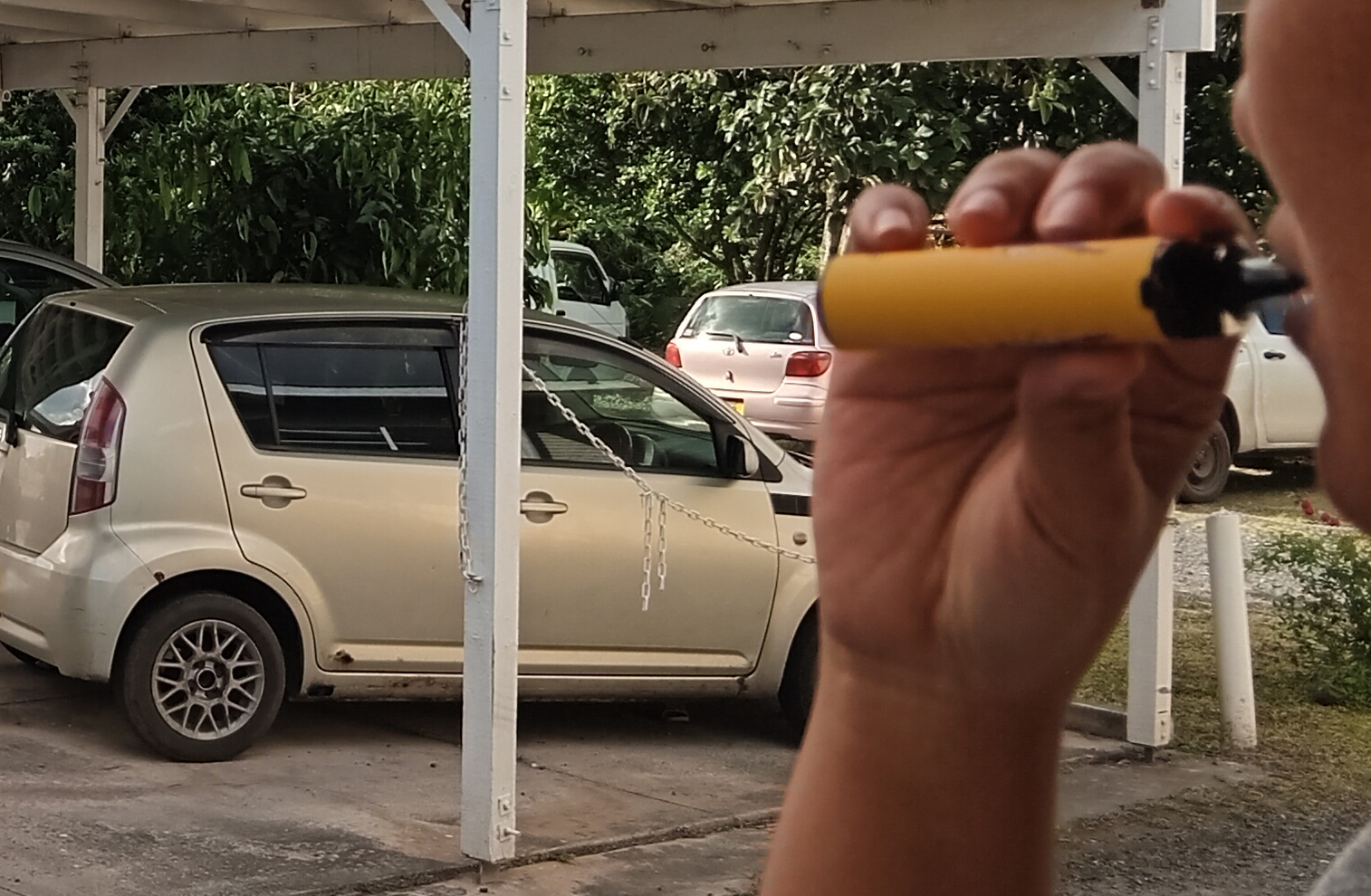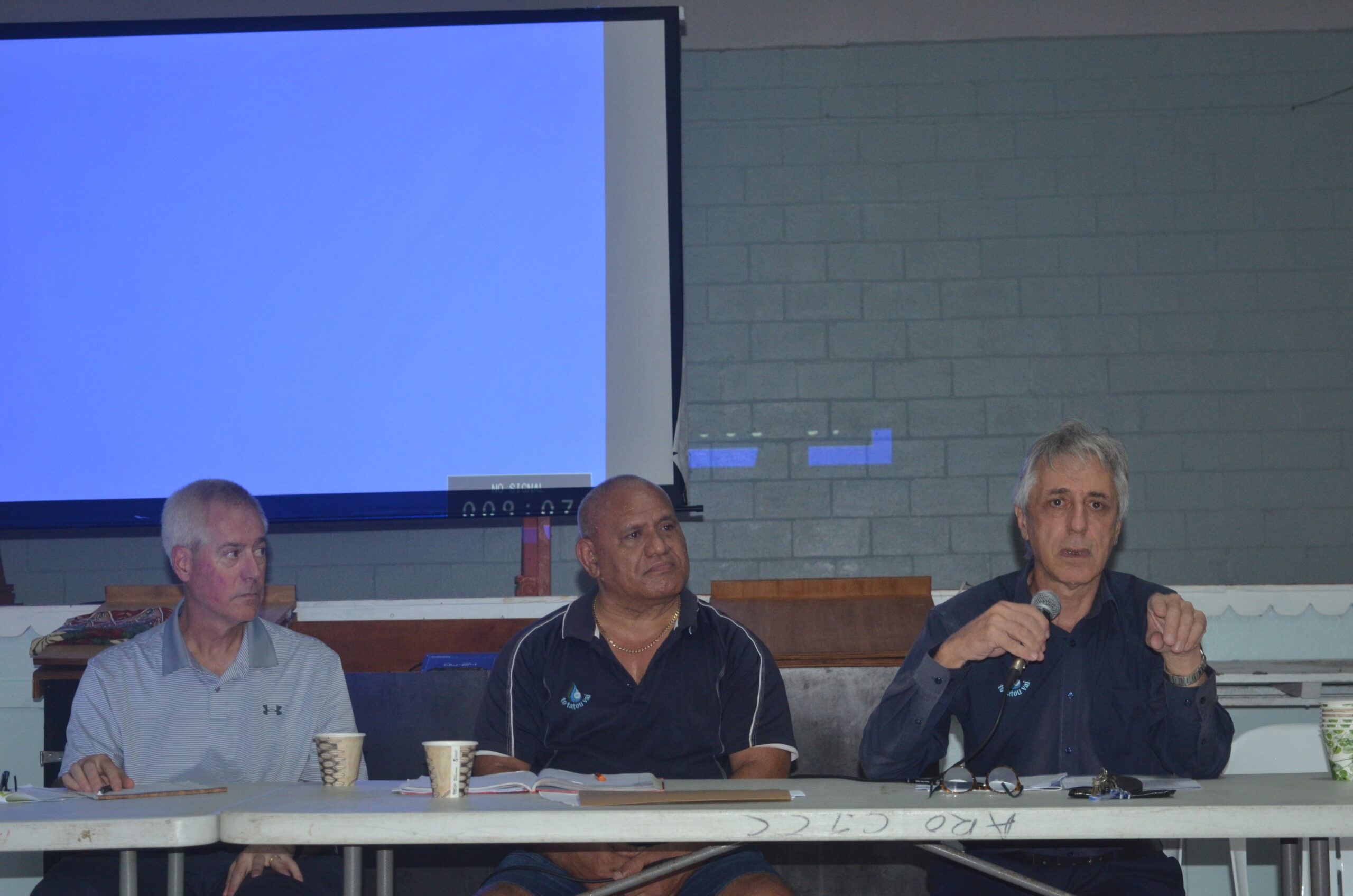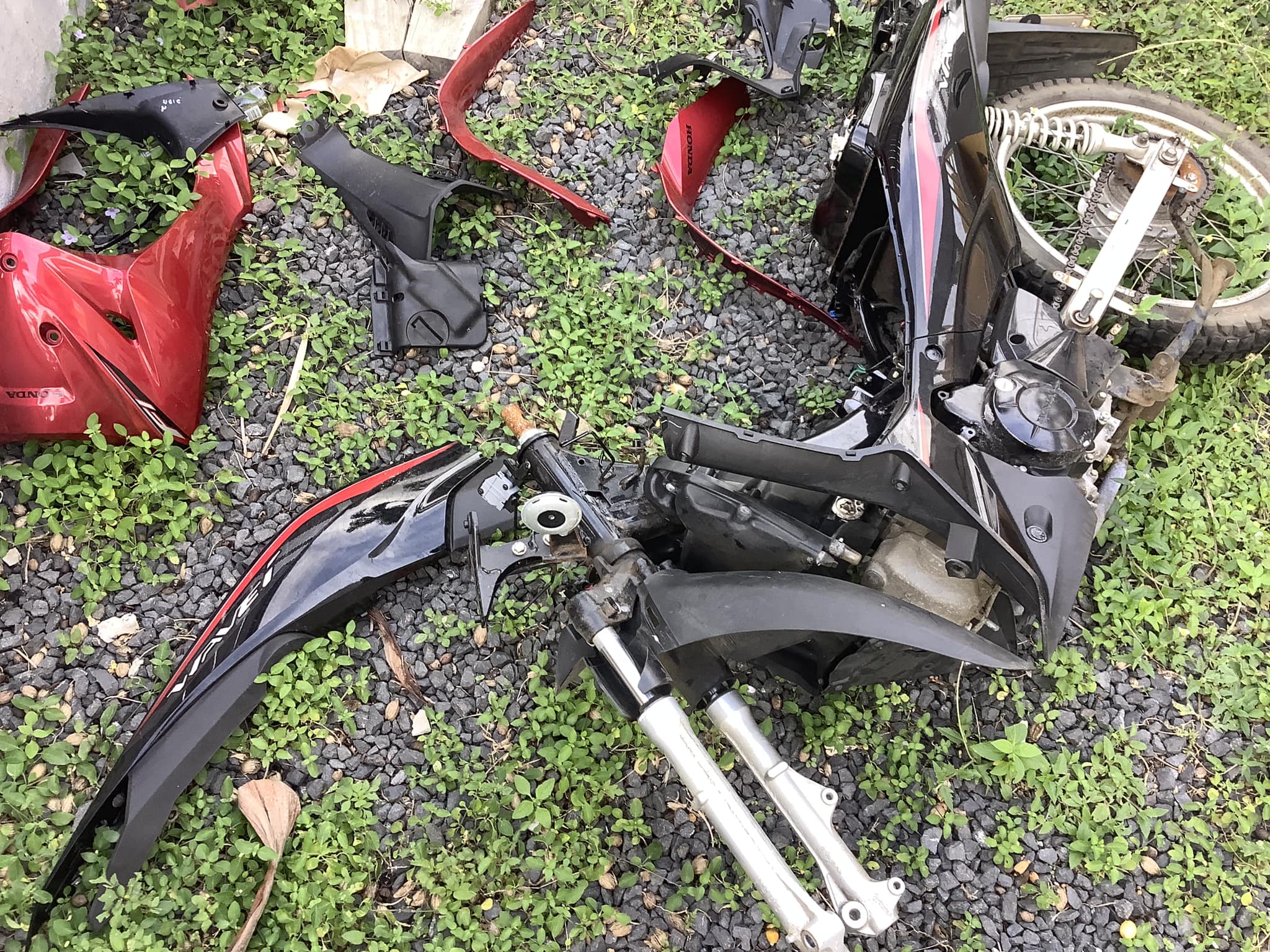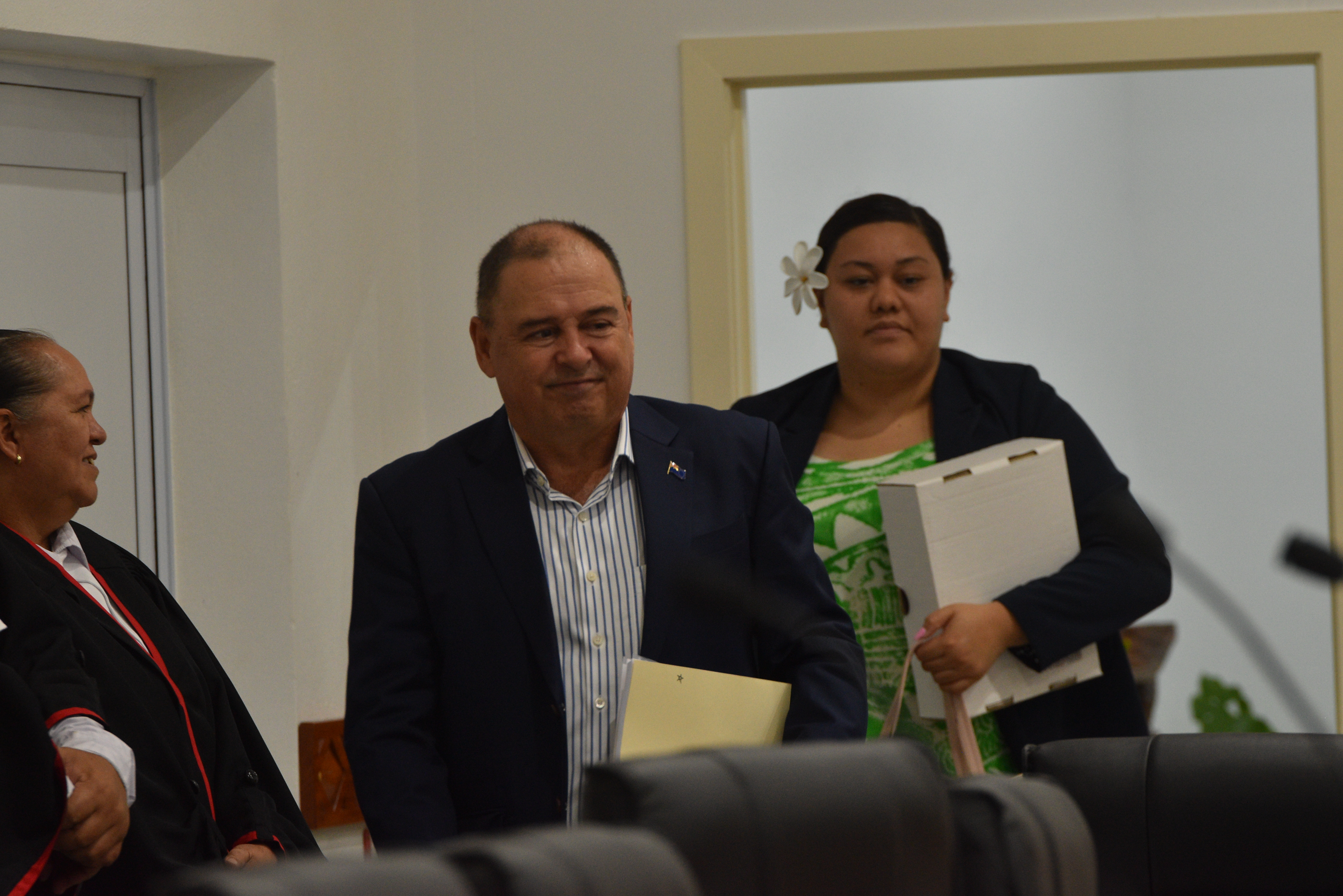Katoa re-elected Oceania Aquatics VP
Monday 29 April 2024 | Written by Melina Etches | Published in Sports, Swimming
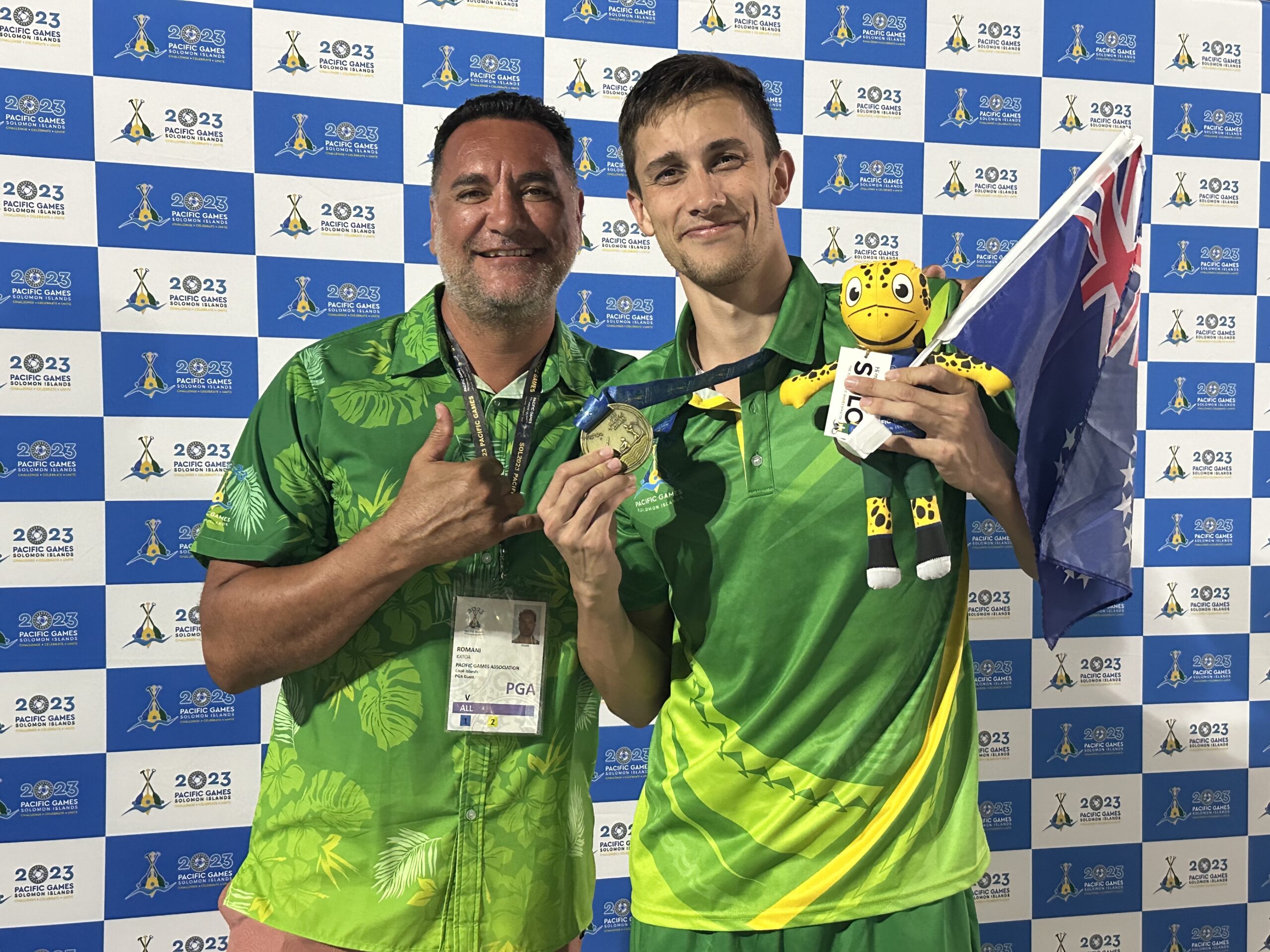
Cook Islands Aquatics Federation president Romani Katoa with Pacific Games dual record holder and gold medallists Wesley Roberts in Honiara, Solomon Islands last year. LOSIRENE LACANIVALU / 23112501
Romani Katoa has been re-elected the vice president of the Oceania Aquatics Board of Directors for a new four-year term.
Katoa has been the president of the Cook Islands Aquatics Federation since 2009.
He is also the first Pacific Islander to be elected to the bureau of the World Aquatics International Swimming Federation executive board.
“I’m very honoured to receive the overwhelming support from my Oceania colleagues,” said Katoa.
The Oceania Annual General Meeting was held a week ago with elections being held for the board, and World Aquatics Bureau positions.
The 2025 to 2029 Oceania Aquatics Board Members are: Matt Dunn - president Oceania Aquatics (Australia) and Bureau vice president, Romani Katoa - vice president Oceania Aquatics and Bureau, Judy Otto - Bureau Member rep from Palau, Suzie Schuster - Treasurer from Samoa, John West - Secretary from NZ, John Hirsch - Director from Northern Mariana Islands and James Panuve - Director from Tonga.
World Aquatics president Husain Al-Musallam and chief executive officer Brent Nowicki also attended the meeting.
According to the World Aquatics report, national federation leaders from Colombia and the Cook Islands have emphasised the value and benefits of the financial assistance provided by World Aquatics.
For most national Aquatics federations, it is not just about swimming and diving in pursuit of medals. Rather, there is a greater emphasis towards developing water sports across multiple levels in their homelands.
The member federations – large and small, and representing five continents – stressed that annual funding provided through the World Aquatics Support Programme is their lifeblood, supporting various sporting missions, helping to develop and nurture individuals, empowering communities, and enriching lives. Fast times in the pool are coveted also.
“It is very important for us and gives us the necessary tools to focus on the development of athletes in all sports,” says Camilo Becerra, the executive director of the Colombian Swimming Federation (FECNA). “We have programmes in water polo, swimming, diving, artistic swimming, and open water swimming too.”
Katoa was equally as grateful as Becerra, albeit possessing different goals and strategies, especially considering operations in a vastly different natural environment.
“Without the funding that we receive, there is no way we could reach out to our community and accomplish what we do with our swimming programmes, it’s as simple as that,” Katoa said.
“Swimming is in our DNA as Polynesians, as navigators and seafarers. Unfortunately, over time, it just never became a mainstream sport and that’s how our people view it. We’re trying to bring it back to what our ancestors used to be.
“We’ve found that through the Swimming in Schools Programme that we’ve introduced, any one of these kids can go on to become an Olympic or world champion, given the right environment, resources and opportunities.”
Katoa points out that there are no 50 metre swimming pools across the 15 islands comprising the South Pacific nation.
“We teach all of our swimming in the lagoon,” he said.
Lessons include ocean awareness and safety, navigating currents, and understanding reefs and the formations of waves.
“We want swimming to be accessible to all and free for all,” Katoa said. “We’re teaching a life skill.”
Katoa echoed similar ideals and ambitions for Cook Islands Aquatics Federation.
“The more people we can get swimming, and understand swimming at the grassroots level, then the larger pool of athletes we have to choose from for our elite programmes,” Katoa explained.
“From there, we can send them onward with scholarships to Australia to further their elite performances there.”
Katoa believes that the Cook Islands also has a promising future in developing water polo. As far as cultivating future internationally competitive swimmers from the Cook Islands, he has big dreams for a small country.
“It would be really great to see some of our island kids from this region, the most challenging and isolated communities in the world even if we live in the Pacific Ocean, to be able to one day compete in an Olympic final.
“We represent the smallest number of swimmers compared to any other continent and would like to grow that significantly over the next few years.”
- Melina Etches/World Aquatics







